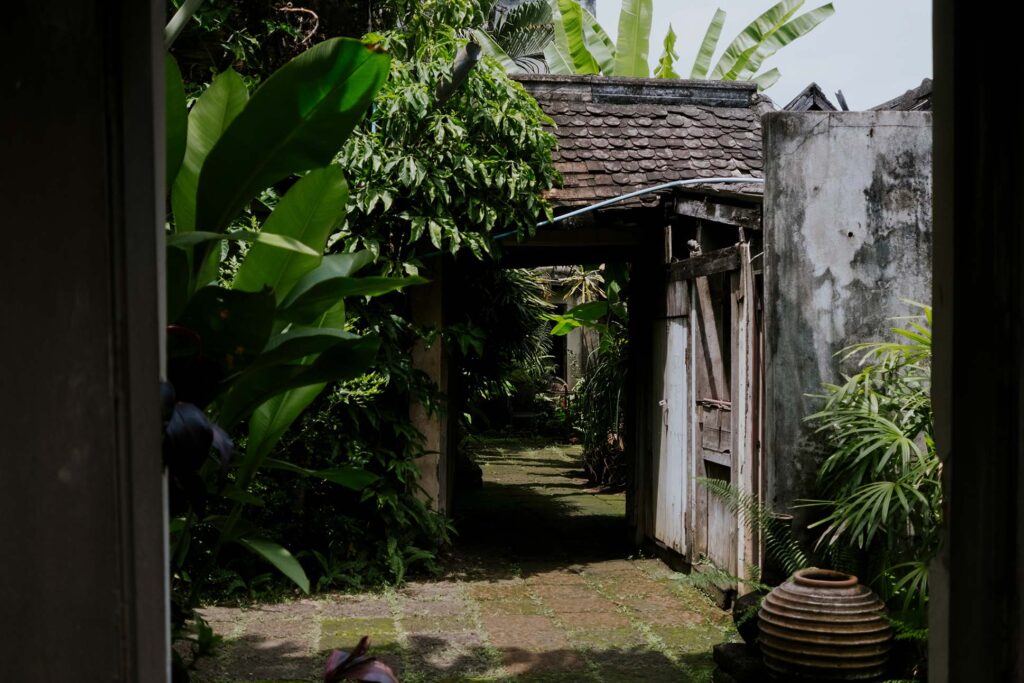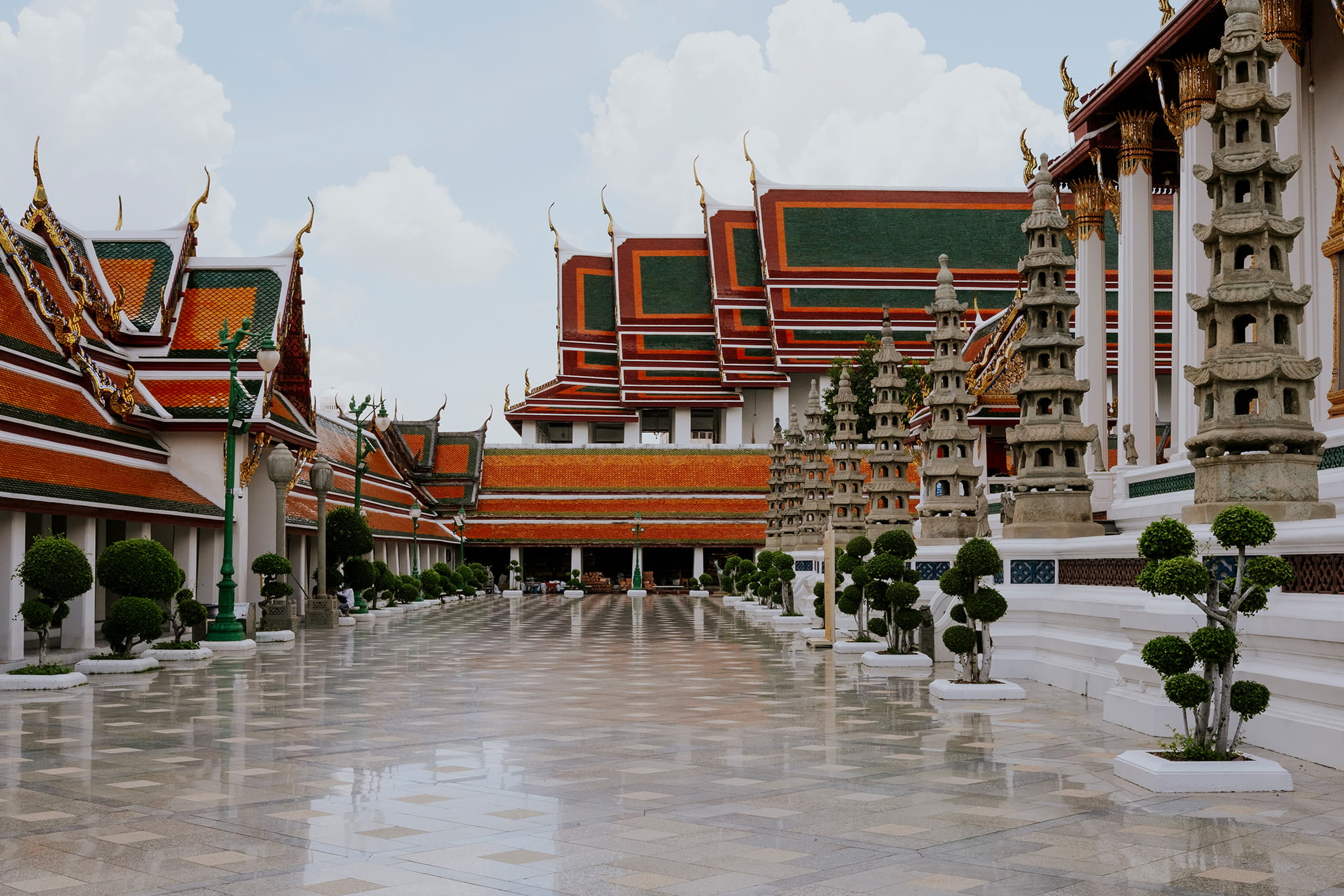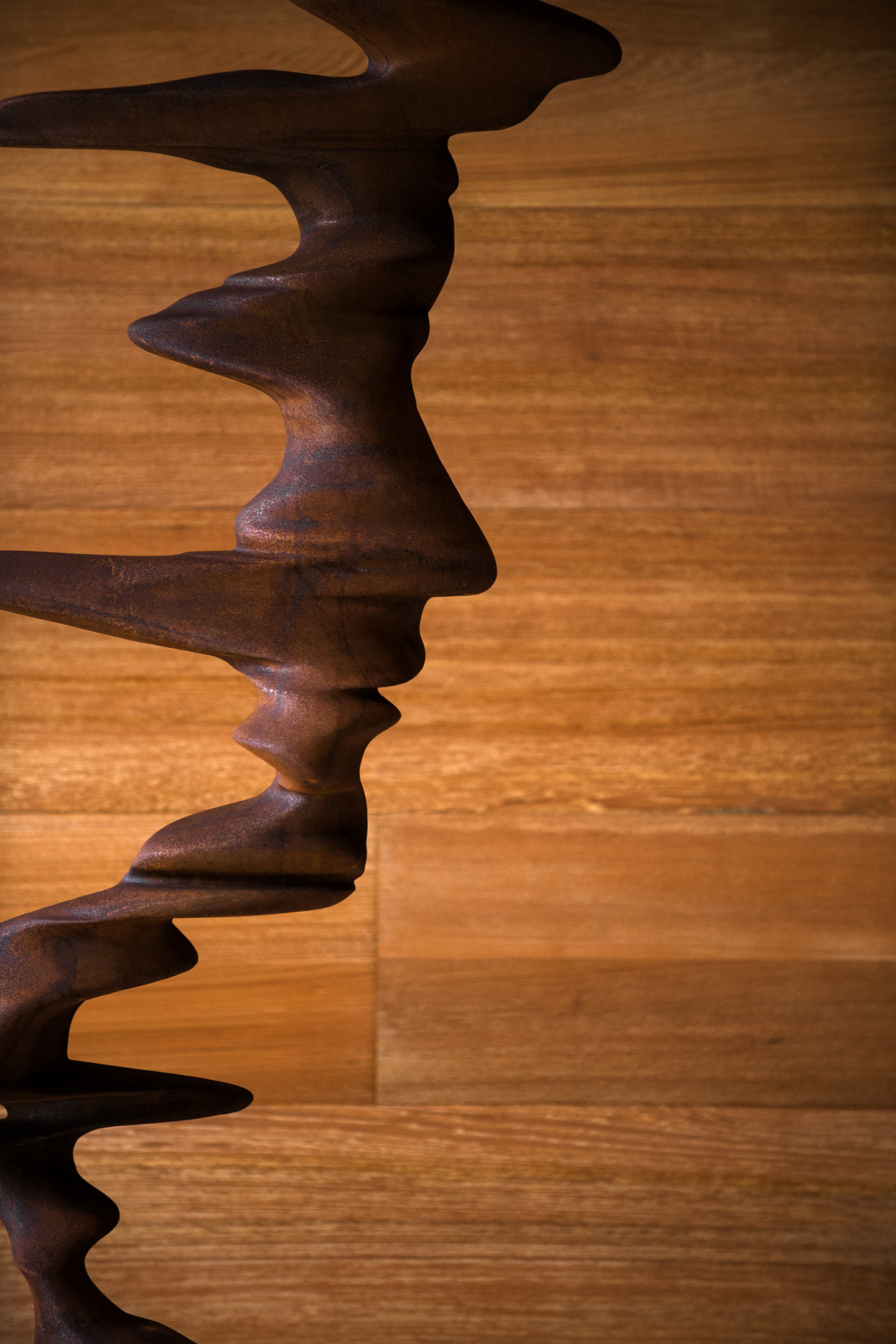Text & images by Viola Gaskell
At ten, I boarded my first international flight: nine hours from Honolulu to blizzardy Tokyo, followed by seven hours to humid Bangkok. In the morning, my mother and I set out on foot, the 35mm Olympus film camera she gave me hanging at my side. I was enamored by the gold-plated Buddhas and the juice stands overflowing with limes and sugarcane, and simultaneously overwhelmed by the myriad smells of the city, so unlike anything I’d known growing up in rural Maui. At a flower market, my mother bought me an amulet of crown flowers, jasmine, and rosebuds that I wore around my wrist like a bracelet, burying my nose in the heady scents as we walked through the city.
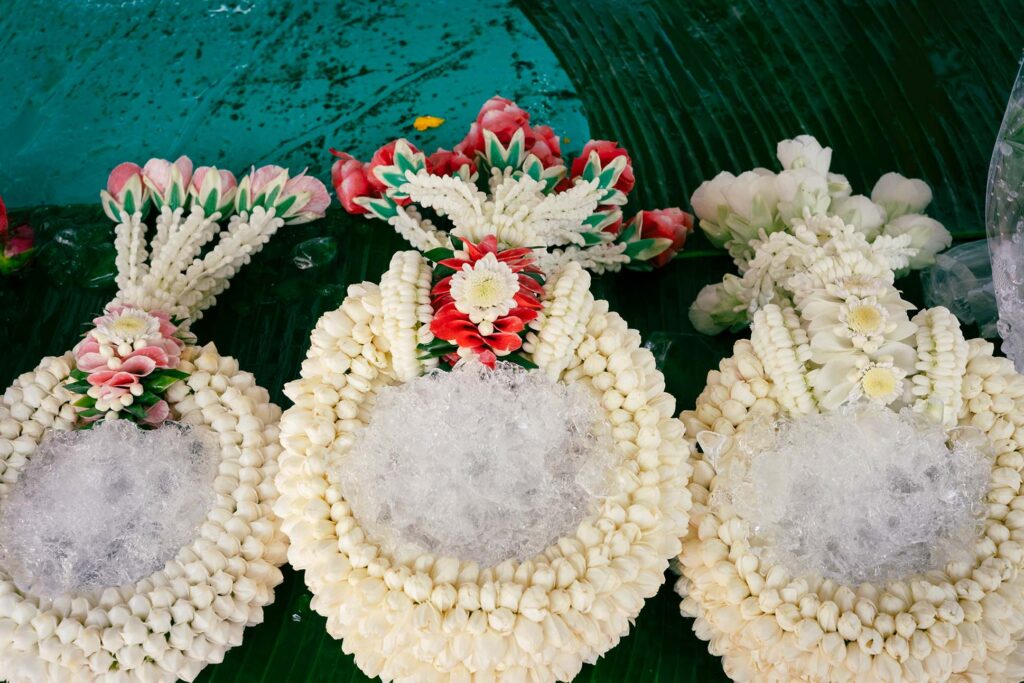
Twenty-two years later, four months after my mom died, I taxied to a flower market on Chakkraphet Road and bought myself a crown flower, jasmine, and rosebud amulet. This time it didn’t fit around my wrist, so I affixed it to my hair. The streets weren’t as vivid as I remembered: The smell of tuk-tuk exhaust and wet concrete after a hard rain, the savory and sweet scents of fish sauce and palm sugar wafting from street food stalls—they hung subtly in the background, less colorful the second time around.
Then, in a narrow alley bordering the market, I spotted a row of five-gallon buckets packed tightly with deep purple lotuses, yet to bloom. They reminded me of my mother—her affinity for the East, her love of meditation and Sufi poetry and brightly colored textiles, especially those with a purple hue.
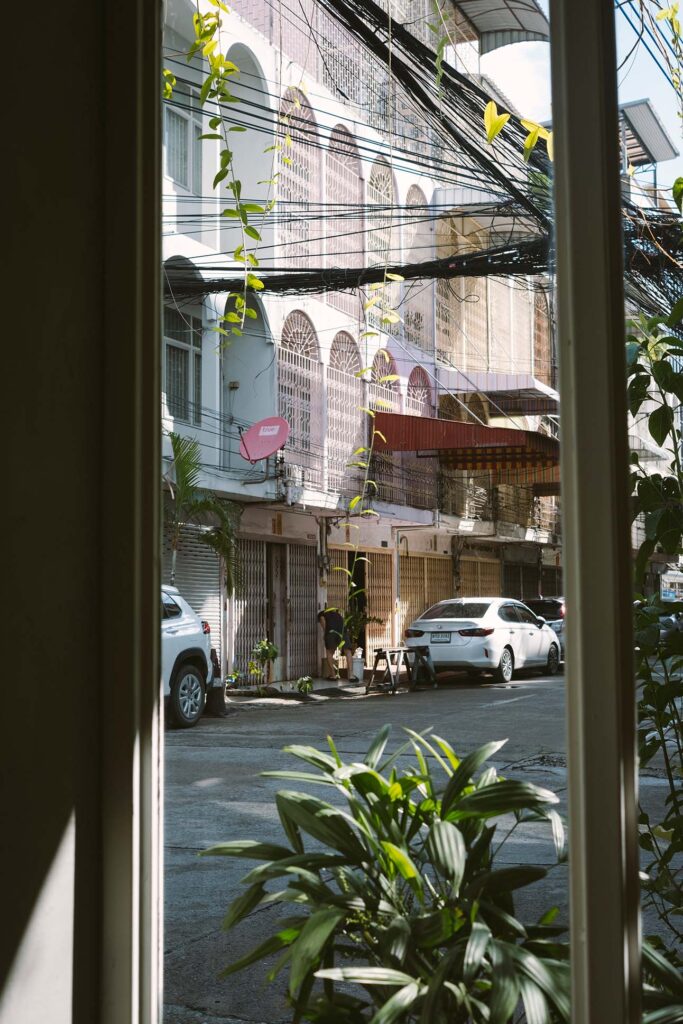
We had planned to return to Thailand together. I renewed her passport and started planning the trip earlier that year, before her cancer took a turn. She died in our home in Hāna that summer, with my brother and me beside her.
I decided to go on our trip anyway, which is how I found myself in the flower market that September—and later in the emergency room of a hospital in Chiang Mai with a persistent pain in my chest. After an EKG, a blood test, and a chest X-ray, a soft-spoken ER doctor concluded that nothing appeared to be wrong with me. I knew then that the pain of losing my mother—and, not much earlier, my fathernow resided in my heart.
Hoping to ease my anxiety, my partner, Jack, and I took a taxi to Looper Co., a cocktail bar nestled between the Ping River and the northeast gate to the Old City, to try to laugh off the ordeal. Seated in the window of the dimly lit bar, drinks in hand and lightning flashing outside, we decided to stick to our plan to ride a motorbike north into the mountains for a few days, despite the rain and my anxiousness.
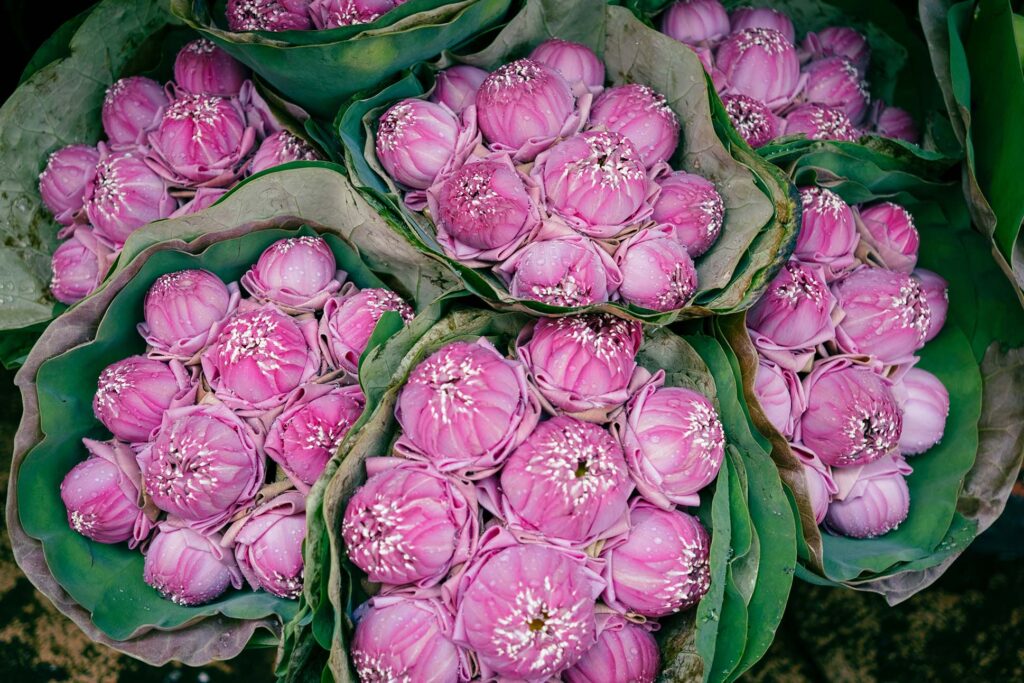
The next afternoon, we traveled north along a rain-drenched straightaway into a sunny patchwork of rice fields, banana trees, and A-frame houses. Temples—some of them dignified teak structures, others campy, glimmering mosaics of color—jutted from the otherwise flat landscape, and dogs lounged about on the quiet roads.
We stopped at an open market in Mae Taeng, where we found foi thong, or golden thread, the elusive, auspicious egg yolk-and-pandan sweet we’d sampled once in Samui but hadn’t found again since. From there we ventured into elephant country. Twice, one of the magnificently large, leathery beasts trundled down the road opposite us, moving from one riverside camp to the next.
The river widened and muddied as we traced its curves deeper into the mountains. Landslides became more frequent, and at times we could not see road beneath the mud. When our tires spun fruitlessly, I hopped off the motorbike and walked ahead until the mud thinned. The splatter marks of ochre clay on my ankles reminded me of Maui’s red dirt.
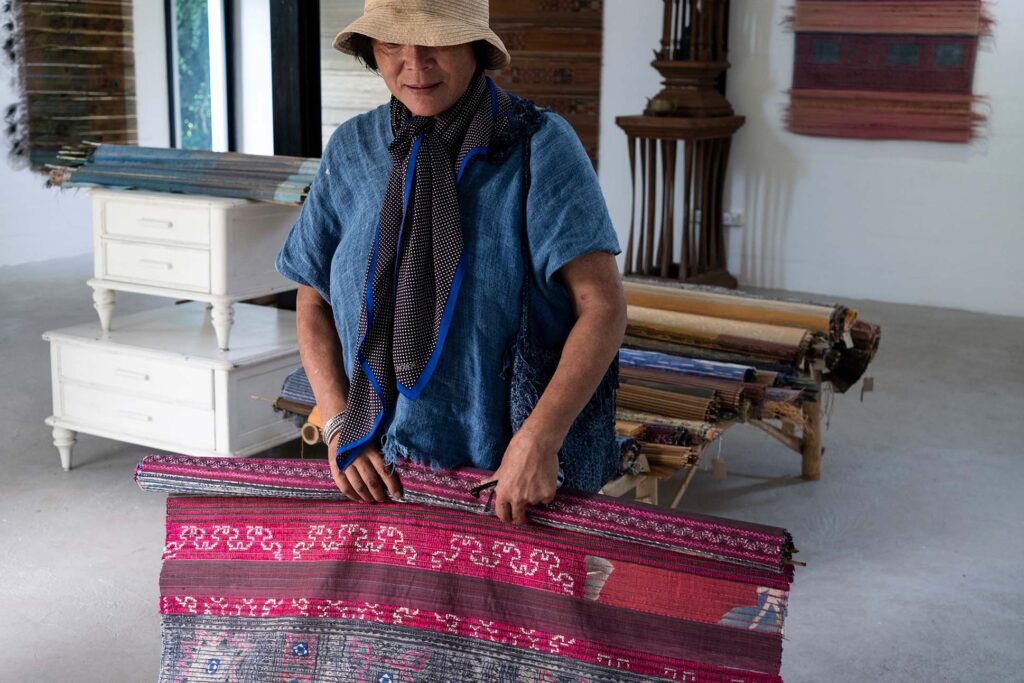
Suddenly missing the safety and surety of home, I grew more and more anxious as the road narrowed and disappeared beneath the mud. It was near dusk, we were running out of water, and we’d already lost cell service. I insisted we turn back; Jack urged us to trudge ahead and turn back only if conditions got worse.
Instead, they got better. Soon we were climbing uphill on mudless roads, past lush hillside coffee groves. Relief washed over me as we neared our abode for the night: a treehouse perched beside a river on a coffee farm. The pink hibiscus and ginger planted at the gate made me feel at home.
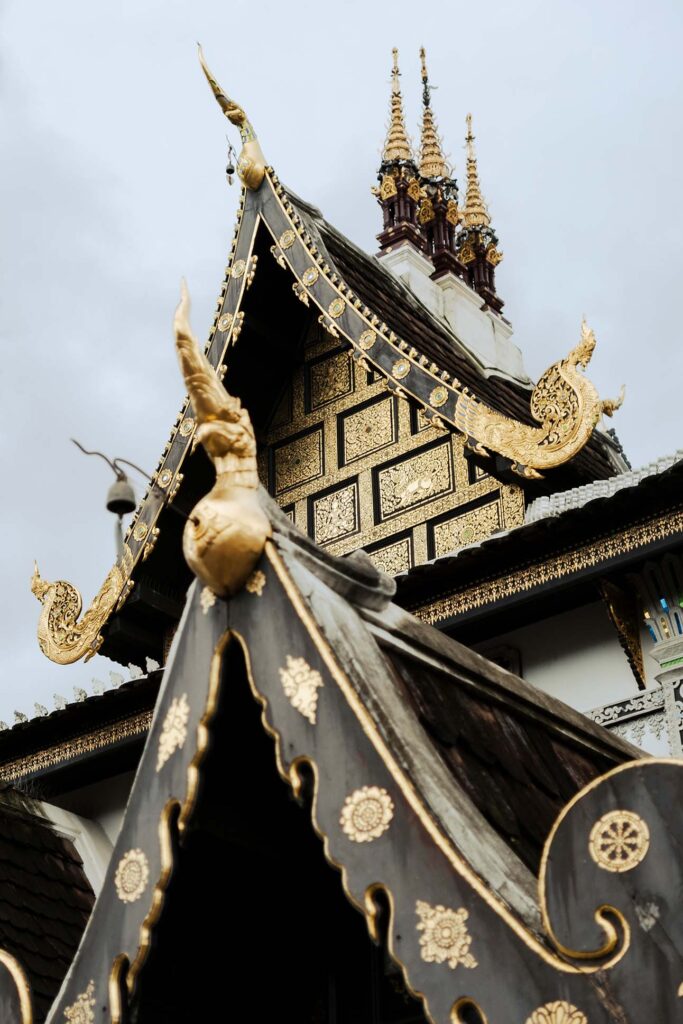
The next day and the next, we made our way through the districts of Mae Taeng and Mae Rim, discovering secluded art studios, unpeopled temples, and quaint farming villages. I would never have taken these routes if I’d been on the trip with my mom as planned—at least, not on a motorbike—but I carried her with me nonetheless.
She gave me my love of travel. Treading through the mountains of northern Thailand, I did my best to summon her resilience, her ease, her ability to stay calm in difficult situations. For the first time in days, the ache in my chest subsided, interrupted by recognition of the joy she would have felt in these places, and in being there with me.
Still, I longed for her company, her bright eyes that lit up at pleasures both simple and profound, but another part of me knew she was there—inseparable from the woman I am because of her. I feel her most in the woods, when I pick a brilliant flower and breathe in its scent, or when a warm wind brushes against me, as it so often did in the balmy highlands of Chiang Mai.
